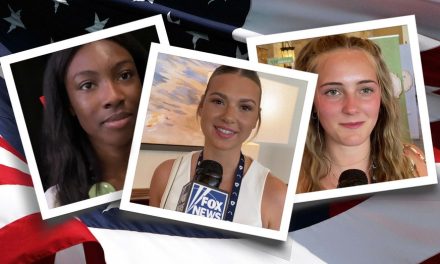In recent years, the perennial conflict between Israel and Palestine has increasingly infiltrated the entertainment world, resulting in a noticeable shift in the way celebrities express their political beliefs. One prominent figure, a well-known liberal comedian who staunchly supports Israel, has come forward to voice concerns about what he perceives as a glaring double standard that affects those in the public eye who advocate for the Jewish state.
The comedian, whose reputation for humor often intertwines with social and political discourse, points out that while numerous celebrities openly criticize Israel, others who dare to voice a pro-Israel sentiment frequently find themselves in hot water. This phenomenon sparks controversy and raises questions about the cultural narrative surrounding the Israeli-Palestinian conflict.
For this comedian, the double standard is glaringly evident. He argues that while organizations and social media platforms promote free speech, this ideology appears limited when it comes to voices that support Israel. “There are plenty of celebrities who feel free to boycott Israel, make jokes about it, or even publicly vilify it,” he notes in a lively discussion on a nationally syndicated radio show. “But if you’re someone who dares to come out in support of the Jewish state, suddenly you’re the villain.”
Despite being on the receiving end of criticism himself for his views, the comedian believes it is critical for public figures to harness their platforms to illuminate what he describes as “bias against Israel” in the media. He argues that this bias often leads to a misrepresentation of the facts surrounding the Israeli-Palestinian conflict, creating a narrative that vilifies Israel and overlooks instances of violence and aggression from opposing factions.
In a deeply polarized society, he acknowledges that addressing the complexities of the conflict in a fair manner is a daunting task. Yet he insists that comedians and entertainers have a unique responsibility to challenge prevailing narratives and foster understanding. “It’s hard to make people laugh while also schooling them on geopolitical complexities,” he admits. “But I think that’s our job. If we don’t bring attention to it, who will?”
His perspective touches on a broader cultural conversation about the role of celebrities in political discourse. The comedian asserts that celebrities wield tremendous influence, and their opinions can shape public sentiment. However, he warns of the consequences that come with espousing a pro-Israel stance, noting that those who take such a position often face backlash from the public and even risk losing contracts or job opportunities.
The comedian points to several high-profile instances where artists, athletes, or entertainers echoed pro-Israel sentiments and faced immediate repercussions. One incident involved a well-known singer who expressed support for Israel on social media. Following an outpouring of outrage from fans and advocates for Palestine, the artist was quickly ridiculed, leading to significant public discussions regarding the consequences of taking political positions in a hyper-connected and reactionary social media age.
In defense of the importance of free speech, the comedian opines, “If you’re not willing to tolerate diverse opinions about critical issues, then are you really promoting freedom of expression, or are you just standing up for the viewpoint you agree with?” He challenges society to embrace a broader spectrum of perspectives, including those that might be unpopular or controversial, stressing that only through dialogue can real understanding emerge.
Furthermore, the comedian’s advocacy extends beyond the limitations of free speech. He argues that the entertainment industry has an inherent bias, which affects not just the comedians and actors but the narratives that permeate mainstream media. He posits that many in Hollywood lean towards narratives that are sympathetic towards Palestine, leading to stories that neglect the complexities behind the Israeli state’s existence and the security concerns its leaders face.
As a liberal comedian, he identifies himself in a unique position to fuse humor with thought-provoking discourse. While humor has always served as a tool for social commentary and critique, he believes it can simultaneously cultivate empathy and understanding. This intersection of comedy and activism positions him as a pivotal voice, encouraging dialogue about a topic often shrouded in tension.
The comedian’s reflections also emerge alongside a growing movement in the United States advocating for pro-Israel sentiments from various sectors of society, including politics, business, and entertainment. This wave of newfound support signifies a potential shift in the cultural landscape, where pro-Israel comedians and artists might find a more receptive audience than before. Nonetheless, challenges remain, as backlash can be fierce for those perceived as siding with a controversial state amidst ongoing conflict.
His observations further extend into the realm of social media, where the rapid dissemination of opinions can lead to a mob mentality. In the aftermath of any celebrity’s comment concerning Israel, the resulting comments section often reflects a battleground where nuanced discussion is sacrificed for vehement declaration of allegiance to one side or the other. “Social media can sometimes amplify the most extreme voices, and that’s where the danger lies,” he reflects. “People are quick to cancel, without understanding the full picture.”
In light of these discussions, the comedian illustrated the importance of balancing humor with respect, particularly when addressing sensitive topics. The careful navigation of the Israeli-Palestinian conflict requires not only wit but also awareness of the historical and emotional dimensions involved. “It’s not just about making people laugh; it’s about fostering a shared understanding and dialogue. If I can use humor to illuminate these issues, then that’s what I’m going to do,” he concluded.
As he continues to engage audiences across the country, the comedian remains dedicated to driving home the importance of diverse perspectives while simultaneously advocating for Israel’s right to exist and defend itself. In doing so, he remains a part of a broader global discourse about the complexities of identity, politics, and the arts.
Ultimately, this comedian’s journey highlights not only the challenges faced by those who opt to support Israel in a politically charged atmosphere but also shines a light on the pressing need for open dialogue that can transcend divisions. In a world where opinions can be polarizing, his insights underscore the necessity to encourage conversations where voices can be heard, even if they contradict the prevailing narratives.
































